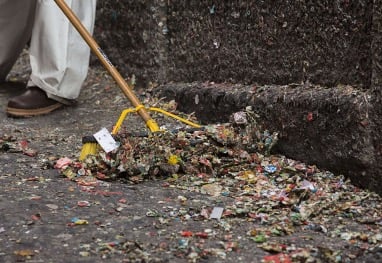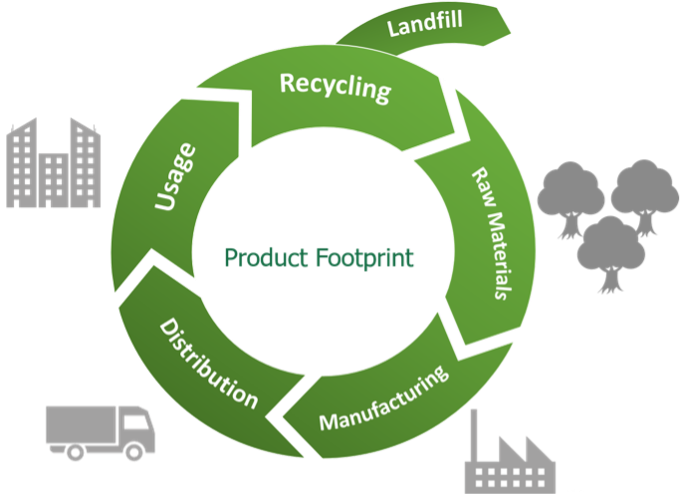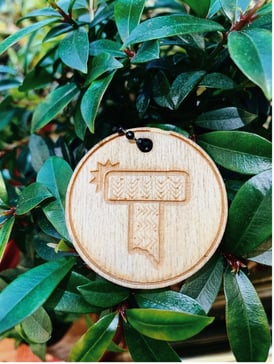
Hey there! My name is Emily Siegel, and I’m the founder and CEO of Trek Gum, an all-natural chewing gum company that incorporates functional ingredients into every chew.
My startup story originated when a childhood idea and a portable oral care dilemma decided to cross paths. As a kid, I always dreamed of having a gum that could clean my teeth on-the-go, because I was horrible at remembering to brush before school yet always had minty gum in my backpack that I tricked myself into thinking was effective. As college student, my oral care routine was the least of my worries while drowning in class work, at least until the cavities started to catch up with me.
Towards the end of my college career, I had a life-altering dental appointment that revealed I had so many cavities I thought the dentist was writing down which teeth didn’t need to be filled. I scoured the internet for DAYS looking for a portable oral solution to prevent more cavities from ever forming again, because in case you didn’t know – having cavities filled is not a fun experience one wishes to have repeated every 6 months! It was during this search that I quickly realized everything on the market was a one-use plastic item that would end up in a landfill for longer than I’d be alive. As someone who passionately loves the planet, I was really turned off by the thought of tossing away a plastic product daily after just 2 minutes of use.
It was then that Trek Gum was born – sike – it was then that I reverted back to 12-year-old Emily and began looking to see if someone had finally created that teeth cleaning gum I wanted back in middle school. Some had attempted, nothing had really succeeded, BUT I was seeing this term “gum base” on all the patents and papers I read. And after another fun afternoon with Google, I learned something that blew my mind, and it was that roughly 95% of gum on the market was made of synthetic plastic and rubber! Here I was, my whole life, thinking chewing gum was food and that if I threw it outside an animal would eat it – WRONG – it was just some synthetic material that was polluting our planet. Did you know chewing gum is the second most littered item behind cigarette butts? I didn’t either a year ago.

Having all this newfound knowledge really lit a fire under me to do two things – 1. Find a way to make oral care more convenient (because I’m not the only one skipping on brushing) and 2. Find a way to make whatever I’m doing good for the planet – no plastic. And that my friends, is how Trek Gum was born.
A big part of my startup journey to date has been spent learning about sustainably sourced ingredients, compostable packaging, refillable business models, and essentially anything that could help me build a company that was just as good for the planet as it was for people. After seeing how cheaply and carelessly other companies were making consumer products, I vowed to only do this startup if it was done properly and ethically. I’m a firm believer that companies should be the ones taking responsibility for and planning for the “end of life” stage of their products, because while I wish all of society loved recycling, I know it’s not the norm, and therefore companies should not be so naive to think customers will properly dispose of their used goods. Instead, I believe businesses should be proactive and intentional about what materials they’re using to begin with and should plan for the reality that their product is going straight in the regular trash after it’s used.
As a startup, being sustainable can be extremely difficult. I really think that’s why companies haven’t been intentionally sustainable in the past. More thoughtful effort is required, more research is warranted, and of course we cannot forget the lovely higher costs of doing things the “greener” way. Yet despite all of this, there is nothing more fulfilling than knowing you are not part of the plastic problem. And if that is not enough for you, just know your customers care. Statistically they’re more likely to pay the premium cost for your sustainable efforts, and we’re now seeing customers demand for natural products, demand for biodegradable products, demand for fair trade, etc. I guess my point in all of this is is that if you want to have a sustainable company, it is going to be significantly more difficult, but you should do it anyways, because it matters to both the planet and the people living here.
As a chemical engineer, I was briefly taught the acronym LCA, which I had forgotten about until a few weeks ago when a friend brought it up, but it stands for Life Cycle Assessment. It’s what I’ve been focused on for years but now has a fun name to it. The assessment forces you to look at the whole life of whatever you’re making, taking into account how the raw goods are sourced, how much energy is needed to manufacture your products, how much CO2 is omitted during transportation, the recyclability of whatever you’re producing, the list goes on and on. It’s a great way to have a reality check on what you’re doing and to address any areas which may be improved to be more sustainable. I highly recommend looking up this assessment and keeping it in the back of your mind when making fundamental business decisions. You’ll likely never have a 100% sustainable product but making intentional choices to reduce your impact on the planet is important.


The future of Trek Gum is green (no not just because we’re starting to fundraise). We have a mission of creating plastic-free consumer goods, and we’re hoping to inspire other startups and larger companies to take the leap of faith away from plastic and look for alternative materials as well. It’s hard, it can be frustrating and overwhelming, but the future is counting on us to innovate sustainably and do our part in fighting climate change. Someday being a sustainable company will be the norm, but until then, we have the awesome privilege of being early trailblazers who disrupt plastic-dominated markets with new and intentionally mindful innovations!